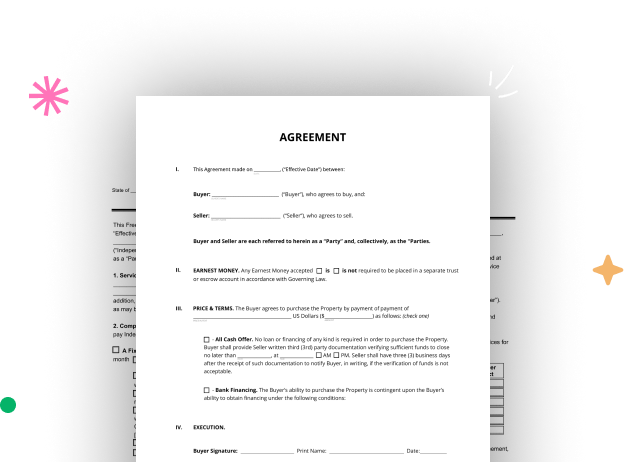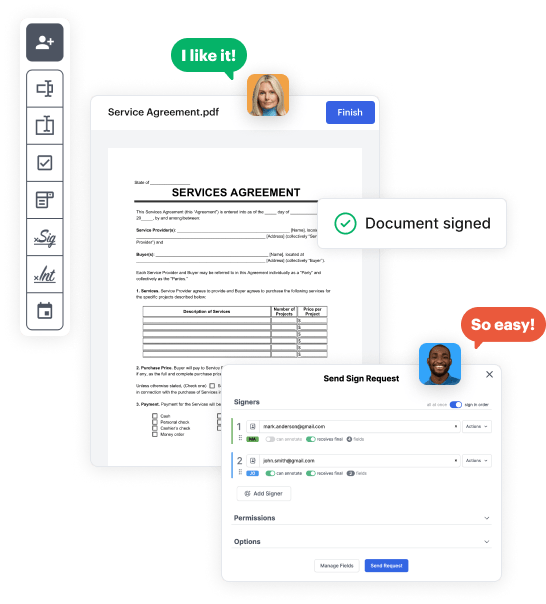

Go to the DocHub website and register for the free trial. This gives you access to every feature you’ll need to build your Odometer-Statement-Legal-Document with no upfront cost.
Sign in to your DocHub account and navigate to the dashboard.
Click New Document in your dashboard, and select Create Blank Document to design your Odometer-Statement-Legal-Document from scratch.
Place various fields such as text boxes, radio buttons, icons, signatures, etc. Arrange these fields to suit the layout of your form and assign them to recipients if needed.
Organize your form quickly by adding, moving, removing, or combining pages with just a few clicks.
Convert your freshly crafted form into a template if you need to send multiple copies of the same document repeatedly.
Send the form via email, distribute a public link, or even post it online if you aim to collect responses from more recipients.